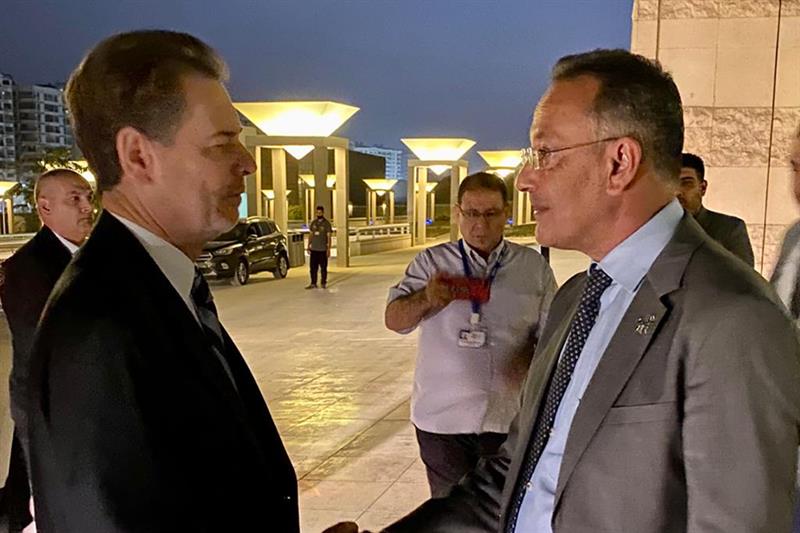
Alvaro Iranzo Gutierrez and Ahmed Ghoneim
Between 15-30 September, the National Museum of Egyptian Civilization (NMEC) hosts an exhibition about the “Antiquities Inspection Tours to Upper Egypt and the Archive of Eduard Toda” (a young Spanish diplomat who served in Egypt between 1884-1886). This exhibition has been curated by Spanish Academics Dr. Molinero and Dr. Rodríguez, in coordination with a group of Egyptian technicians and scientists from NMEC.
The exhibition is based upon old photographs, calques, paintings and articles produced during Tod´s fruitful stay in Egypt. It might not be very rich in number, yet it contains interesting information about the way scientists interacted with the Antiquities Conservation Service of the Egyptian authorities during the last decades of the XIX century. The fact that many of the artefacts discovered during Eduard Toda´s stay in Egypt (i.e. the intact Theban tomb of Sennedjem in Luxor) are exhibited in the general hall of the museum is an added bonus for visiting, or revisiting NMEC. These artefacts may be admired in their mint condition.
As a young Spanish diplomat, Toda used his attentive perception and crisp intelligence when visiting Cairo and other areas in Egypt. As many tourists in our days, he enjoyed everything he saw. In addition, he had the chance to enjoy the great experience of new discoveries amongst a thriving multinational scientific community that was eager to decipher the foundations of our modern world.
Over the course his life, Eduard Toda wrote several books and newspaper articles in which he was able to describe the events he attended, as well as the wonders he had the chance to visit. Of course, the information they contain should be read in their own context. Indeed, in those days, no matter how long ago it may seem, there was no Instagram, Facebook or Twitter. Nevertheless, Toda was able to collect an interesting set of calques and photographs that help us to understand the methodology scientists used to gather in all ancient monuments at the end of the XIX century. He was indeed a pioneer in the use of methods that constitute the transition between drawing, tracing and photography.
One must also consider the difficulties of excavating during the XIX century. The organization of inspection trips to the Upper Egypt could become extremely complicated and challenging, for the Antiquities Conservation Service, scientists, and workers. Let us not forget the patient role played by these Egyptian citizens who carefully helped to discover the artefacts on the spot. Many of their relatives are part of today´s archaeological missions in Egypt.
Egyptology constitutes a permanent source of knowledge for humankind. This includes, not only the proof of the existence of an extremely skilful and advanced society, but also the basis of many contemporary values, the sense of family, and the liking of art that we enjoy today. In addition, the growing interest of Egyptology has helped to weave a complex network of scientific international relations, in what it may be considered today as one of the pillars of modern soft diplomacy. We are proud of this cooperation and grateful for the cultural bridge that is being built daily on the many findings that appear all over Egypt.
These, amongst others, are a few reasons why one should revisit NMEC “accompanied” by Spanish Egyptologist, Eduard Toda i Güell. If you walk slowly and listen attentively, you may be able to hear the stories of the Ancient Egypt and if you even pay more attention, the laughter and grief’s of the Sennedjem´s family.
It is a great honour, both for the Spanish Embassy and NMEC to maintain a very fruitful cooperation and to build on the pillars founded by this pioneer archaeologists. We look forward to continuing this fruitful task.
*A version of this article appears in print in the 22 September, 2022 edition of Al-Ahram Weekly.
Short link: